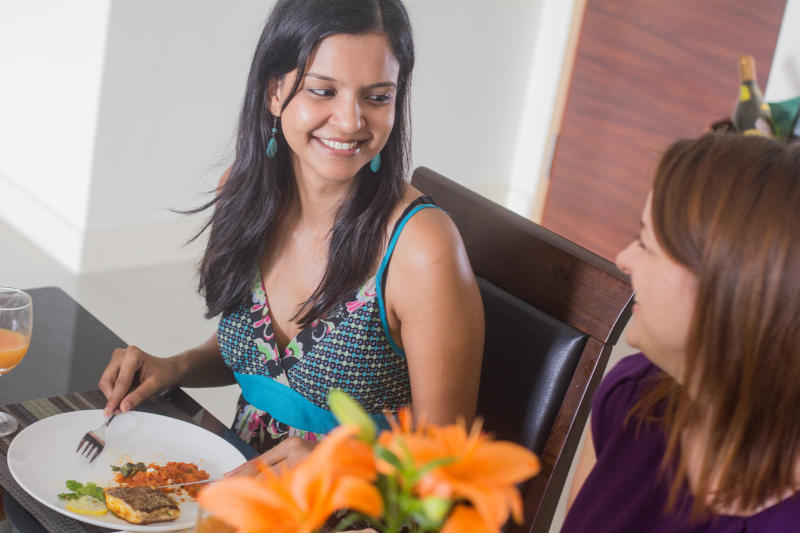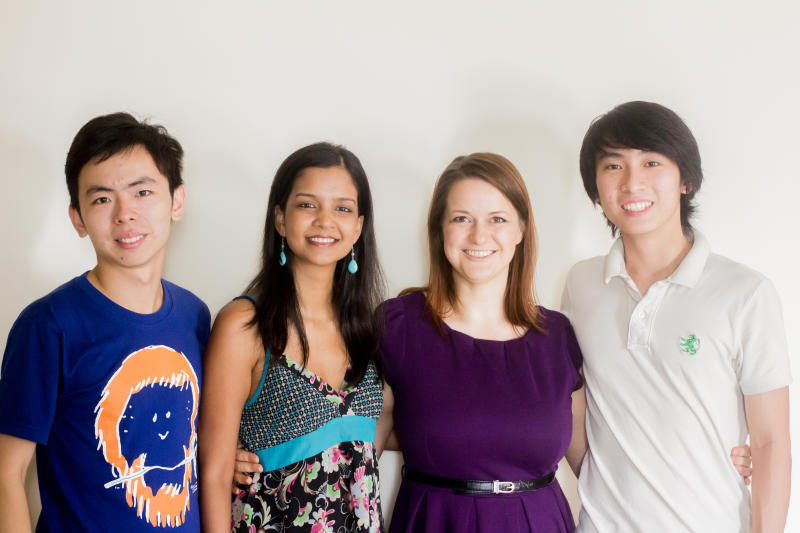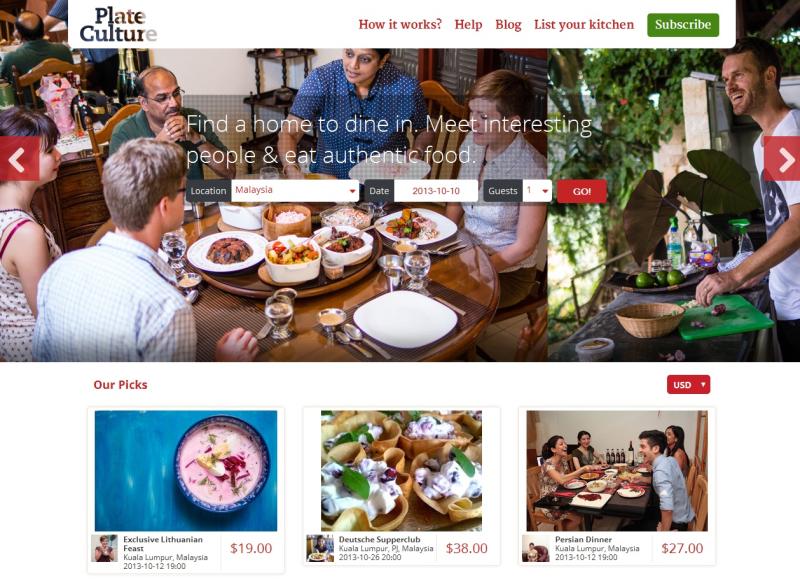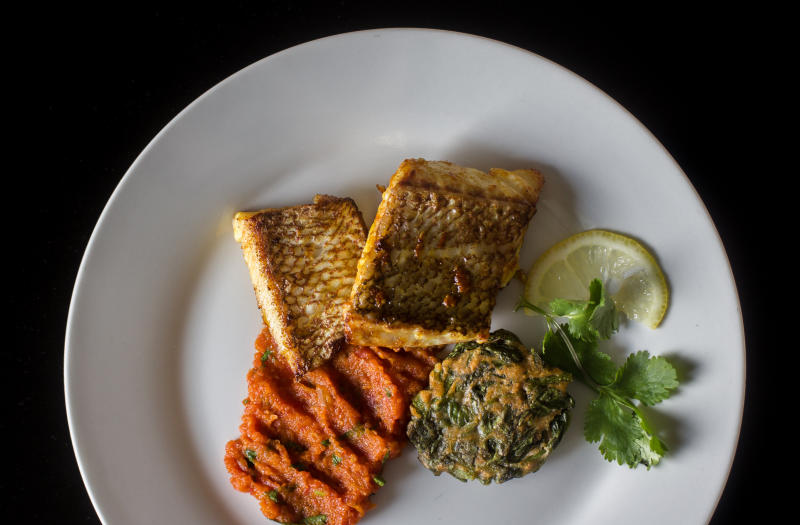By CHEW JERN IAN and CHEW JERN KEN
brats@thestar.com.my
Named by TIME magazine as one of the top 10 ideas that will change the world, collaborative consumption is a powerful market trend that fosters a sense of community between consumers in sharing products and services.
Co-founded by Audra Pakalnyte and Reda Štare, two enterprising 29-year-old Lithuanians, PlateCulture (PlateCulture.com) is a Malaysian-based company aiming to capitalise on that trend.
PlateCulture is an online marketplace that connects “people who love cooking & hosting dinners to those who love eating authentic home-cooked meals”.
“We are part of this co-sharing trend – community to community by a community approach,” said Pakalnyte, before rattling off a few names of co-sharing pioneers like Airbnb, Couchsurfing and so on.
Previously having worked with AIESEC and YouthAsia, Pakalnyte made the plunge into entrepreneurship a few months ago, as she shared with the BRATs in a Skype conversation.

Mauritian expatriate Shiksa Nuckched (left) enjoys introducing her guests to authentic Mauritian cuisine through PlateCulture.
We had the opportunity to have lunch together with Pakalnyte, and Shiksa Nuckched, a Mauritian expat who hosted and cooked for us at her apartment in Bangsar. Our lunch was a full course of Mauritian cuisine, starting with Bloody Mary shooters and ending with Chai Tiramisu.
How PlateCulture works
PlateCulture has enlisted more than 100 chefs-cum-hosts, mostly Malaysians but with quite a number of expats as well, from all walks of life.
“Our youngest host is 22, and the eldest is 63. It’s really for everybody,” said Pakalnyte.
For guests, the booking system of PlateCulture is simple – choose your date and time for a meal with the selected host, enter your email address, and you will receive an email from the team confirming your booking, along with the exact address of the host’s house. You can cancel your booking at no cost 48 hours in advance.
For hosts, you just have to list your kitchen via the website and pass a screening process by the team.
The experience
Our first PlateCulture experience felt a bit like travelling to a foreign place, but without the hassle and cost of actually travelling.
For one, we had never met Nuckched, our host, until the dinner at her place.
Secondly, Mauritian cuisine was something we had never tried before. And thirdly, the small lunch audience was multinational (two Malaysians, one Lithuanian, and one Mauritian).

The writers with PlateCulture co-founder Reda Štarė (second right) and their dinner host Shiksa Nuckched (second left).
A review on the PlateCulture website by an Italian guest echoed our experience, saying: “I loved the global aspect of PlateCulture – I was surrounded by people from Lithuania, Slovakia, Singapore and Egypt!”
Pakalnyte said PlateCulture is a great platform for adventurous souls.
“We are trying to redefine (the concept of) urban travelling a bit, but not in a four-star hotel restaurant. You go to someone’s house and you meet the locals.
“For local people, you are travelling within the city. You can look for something you haven’t eaten before, you get to try things, you expand your networks, and meet people outside your (social) circles,” she said.
The experience is equally rewarding for the hosts. Not only do they get to satisfy their passion for cooking and hosting, they also get to share their cultures with the guests.

The PlateCulture website, where amateur chefs can sell authentic home-cooked dinners, prepared and served in the comfort of their own homes.
Khai Tzer, a software engineer and Malaysian PlateCulture host, said: “It lets you fulfil your dream of owning a restaurant, without actually having to own a restaurant.”
Nuckched added that being a host has helped her better write her cookbook on Mauritian recipes, which she had taken some time off from her job as a marketing professional to work on.
“This is the ideal situation – you don’t have to have a restaurant, so you can cook for small groups and be creative,” she said.
What’s next?
At the moment, PlateCulture is still less than a year old, and there is still a lot more on its plate – especially having just launched in Singapore and Thailand.
It is looking to expand to other neighbouring countries like Vietnam and the Philippines.
The company, currently operated by a small team, is also looking for “ambassadors” and photographers to verify new hosts, and hopes to collaborate with other online platforms like their own.


Tell us what you think!